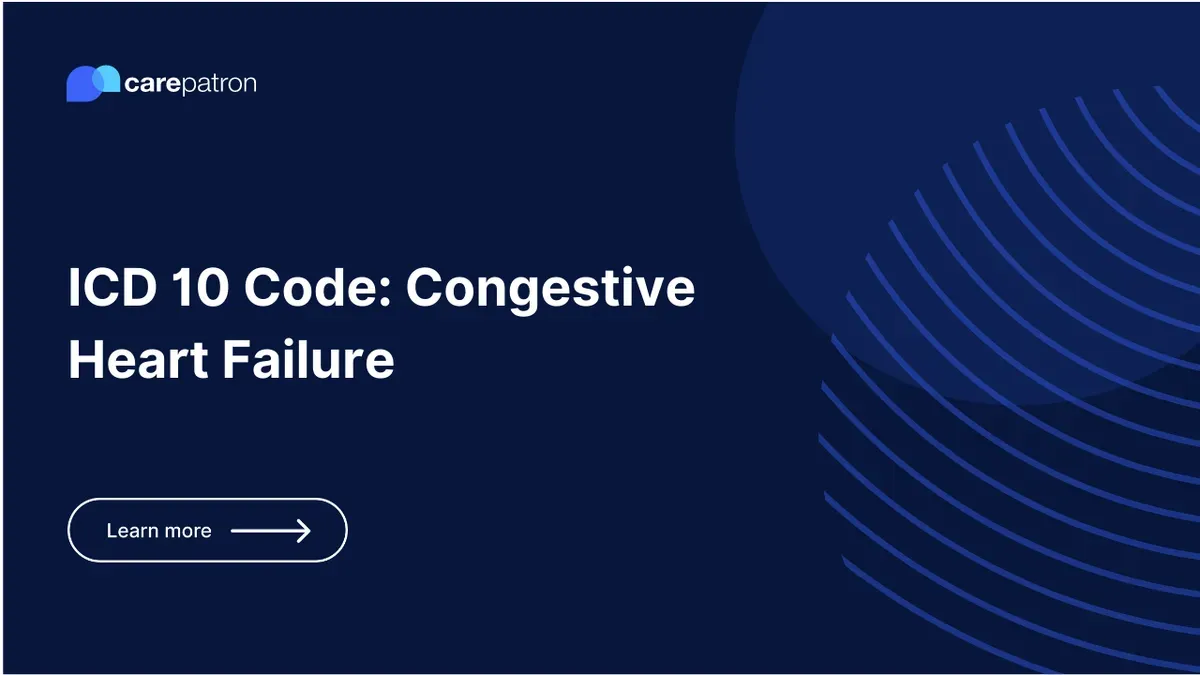
Congestive Heart Failure ICD-10-CM Codes
Get a comprehensive view of the Congestive Heart Failure ICD codes for 2023. Included are codes, clinical information, synonyms, FAQs, and more.
Use Code
Commonly asked questions
Common causes of CHF include conditions that damage the heart, such as coronary artery disease, high blood pressure, and diabetes.
Symptoms of CHF can include shortness of breath, fatigue, swollen legs, and rapid heartbeat.
Management of CHF can involve lifestyle changes, medications, and in severe cases, devices implanted into the heart or heart surgery. Regular follow-ups are also crucial in managing the condition.
EHR and practice management software
Get started for free
*No credit card required
Free
$0/usd
Unlimited clients
Telehealth
1GB of storage
Client portal text
Automated billing and online payments
